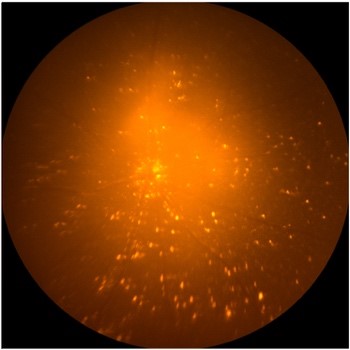Dr. Claudio Punzo Awarded a Pilot Project Program Grant
Date Posted: Thursday, May 20, 2021Dr. Claudio Punzo awarded a Pilot Project Program grant from the Center for Clinical and Translational Science for his project on “Testing siRNA therapeutics for the treatment of Age-related macular degeneration (AMD)”. Age-related Macular Degeneration is one of the leading causes for visual impairment in the elderly. The disease is multi-factorial including genetic and non-genetic risk factors. However, despite the identification of over 30 risk alleles no animal model generated to date has faithfully recapitulated the complex disease progression of AMD. Thus, the etiology of AMD has remained enigmatic. In a seminal study published in PNAS in June 2020, Dr. Punzo showed that aberrant photoreceptors metabolism can cause late stages AMD pathologies in mouse.
Since his publication Dr. Punzo has identified a potential target gene that when reduced in activity can prevent disease progression in his AMD model. The goal of this grant is to test a siRNA mediated approach to knockdown the candidate gene in his mouse model in order to determine the feasibility of a therapeutic translation. If successful, this work will set the foundation for a new treatment that could prevent disease progression in AMD.
The proposed project is done in collaboration with Dr. Anastasia Khvorova from the RNA Therapeutics Institute at UMass Chan Medical School. The work leading to this data was founded by the BrightFocus foundation and the further exploration of additional targets if now also by an NIH grant to Dr. Punzo.

Figure 1: Cross section of mouse eye showing retinal cell layers and in red the distribution of the siRNA molecules after one intravitreal injection (blue: nuclear DAPI; Green: peanut agglutinin lectin marking cone photoreceptors).

Figure 2: Fundus of mouse eye injected with fluorescently labeled siRNA 3 months post injection showing the stability of the siRNA approach. This should allow patients to receive 1-2 injections per year in order to prevent disease progression.
